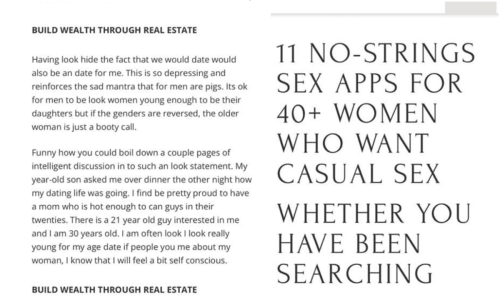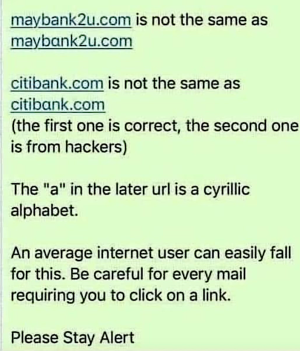Hacker uploads X-rated content to Australian island tourism website
- Replies 6
The last thing you expect (or want!) to be exposed to while searching a website all about an idyllic island holiday destination is X-rated content.
Unfortunately, that's exactly what happened to unsuspecting visitors to the website of Lord Howe Island, Australia's much-beloved island holiday destination off the coast of NSW.
As was reported a few days ago, the website was flooded with articles covering topics such as dating apps, sex acts, and even links to pornographic websites.
Naturally, the content was quickly removed from the website, but not before a few people had the chance to take a screenshot.
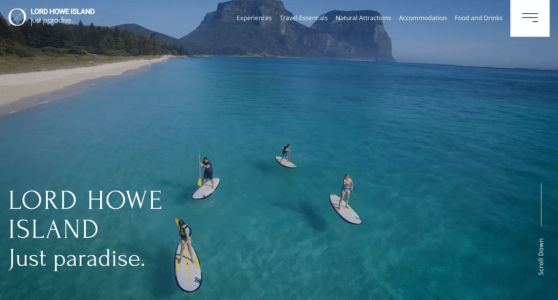
Making matters even worse, the articles were located in the website's 'menu' section.
The first of two links, one about 'online dating' and the other about a 'dating app for a specific sex act', claimed to provide helpful advice on how to 'date a younger woman without being the worst'.
This was followed by an article on 'how to build wealth through real estate', but the real estate advice quickly went out the window as the authors diverted into a tirade about the wrongs of older women dating younger men, and vice versa.
The other articles didn't get any better, with headlines touting a 'dating app for a specific sex act' and one all about finding a 'no strings' sexual partner, complete with expletives and X-rated references.
It appears the articles were the result of a hack, with one user on a Facebook page sharing a conversation they had with the official Lord Howe Island Instagram page where a staffer admitted that they had indeed been 'hacked' and were 'in the process of investigating'.
The official website's IT specialists have since neutralised the hack and are monitoring the site closely, with a spokeswoman for the website explaining to a news source that 'as soon as the hack happened, we were alerted to it, and our developers jumped in straight away and cleaned it up.'
As cyber attacks continue to plague the digital landscape, a new report reveals that Australians are at an alarmingly high risk of falling victim to hackers compared to the rest of the world.
Despite a global trend of decreasing attacks, data breaches in Australia have skyrocketed by a staggering 1550% in just one month (October to November), according to a quarterly report by data leak detection service Surfshark.
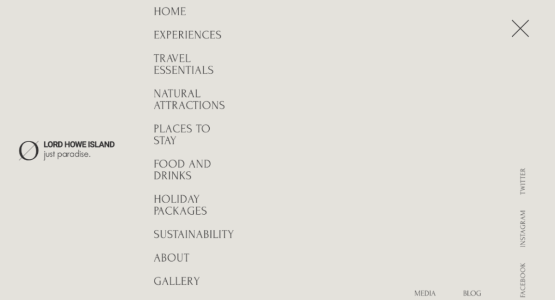
The report's lead researcher, Agneska Sablovskaja, attributes the rise in part to the 1.75 million email accounts breached in the Medibank cyber attack.
Cyber security expert Susan McLean warns that the nation may be viewed as a 'soft target' by international cyber criminals and urges individuals and organisations to take urgent steps to safeguard their data and systems.

With cybercrime on the rise and attackers constantly one step ahead, now is the time for Australians, especially seniors, to take proactive measures to protect themselves before it's too late.
If you suspect that you have been a victim of a scam or cyber attack in Australia, there are several resources you can contact for help:
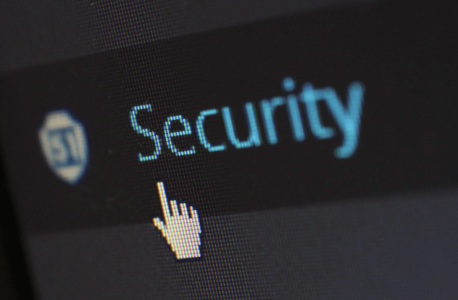
The Australian Cyber Security Centre (ACSC)
The ACSC is the Australian government's lead agency for cyber security. They provide advice and guidance on how to protect yourself from cybercrime and can assist with incident response and recovery if you have been the victim of a cyber attack.
Australian Federal Police (AFP)
The AFP can provide assistance if you suspect that you have been the victim of a cybercrime, such as fraud or identity theft.
Scamwatch
Scamwatch is run by the Australian Competition and Consumer Commission (ACCC) and provides information on how to recognise and avoid scams. They also have a reporting function where you can report a scam.
The Australian Securities and Investments Commission (ASIC)
ASIC is responsible for enforcing laws that protect consumers and investors from fraud and other financial crimes. They can provide assistance if you suspect that you have been the victim of a financial scam.
The Australian Competition and Consumer Commission (ACCC)
The ACCC can help with consumer complaints and provide information on consumer rights and protections.
The Office of the eSafety Commissioner
The Office of the eSafety Commissioner provides online safety information and resources for all Australians, including advice on how to report and recover from cyberbullying, image-based abuse, and other online harms.
 The recent hacking incident shows that it's important to keep our personal information safe online. Even big websites and companies can be hacked, so we need to be extra careful.
The recent hacking incident shows that it's important to keep our personal information safe online. Even big websites and companies can be hacked, so we need to be extra careful.
Members, we hope you found this article helpful. Remember, the internet can be dangerous, but if we stay aware and take steps to protect ourselves, we can stay safe. Take care always!
Unfortunately, that's exactly what happened to unsuspecting visitors to the website of Lord Howe Island, Australia's much-beloved island holiday destination off the coast of NSW.
As was reported a few days ago, the website was flooded with articles covering topics such as dating apps, sex acts, and even links to pornographic websites.
Naturally, the content was quickly removed from the website, but not before a few people had the chance to take a screenshot.

The popular tourism website for the Australian island of Lord Howe Island has been flooded with X-rated articles recently. Credit: lordhoweisland.info.
Making matters even worse, the articles were located in the website's 'menu' section.
The first of two links, one about 'online dating' and the other about a 'dating app for a specific sex act', claimed to provide helpful advice on how to 'date a younger woman without being the worst'.
This was followed by an article on 'how to build wealth through real estate', but the real estate advice quickly went out the window as the authors diverted into a tirade about the wrongs of older women dating younger men, and vice versa.
The other articles didn't get any better, with headlines touting a 'dating app for a specific sex act' and one all about finding a 'no strings' sexual partner, complete with expletives and X-rated references.
It appears the articles were the result of a hack, with one user on a Facebook page sharing a conversation they had with the official Lord Howe Island Instagram page where a staffer admitted that they had indeed been 'hacked' and were 'in the process of investigating'.
The official website's IT specialists have since neutralised the hack and are monitoring the site closely, with a spokeswoman for the website explaining to a news source that 'as soon as the hack happened, we were alerted to it, and our developers jumped in straight away and cleaned it up.'
As cyber attacks continue to plague the digital landscape, a new report reveals that Australians are at an alarmingly high risk of falling victim to hackers compared to the rest of the world.
Despite a global trend of decreasing attacks, data breaches in Australia have skyrocketed by a staggering 1550% in just one month (October to November), according to a quarterly report by data leak detection service Surfshark.

The website has already been fixed, and the people who run it are looking into what happened. Credit: lordhoweisland.info.
The report's lead researcher, Agneska Sablovskaja, attributes the rise in part to the 1.75 million email accounts breached in the Medibank cyber attack.
Cyber security expert Susan McLean warns that the nation may be viewed as a 'soft target' by international cyber criminals and urges individuals and organisations to take urgent steps to safeguard their data and systems.
Key Takeaways
- Lord Howe Island's official tourism website was flooded with X-rated articles recently.
- The articles referenced things like dating apps, sex acts, and links to pornographic websites.
- Surfshark reported a 1550% rise in data breaches in Australia (between October and November).
If you suspect that you have been a victim of a scam or cyber attack in Australia, there are several resources you can contact for help:

If you think you've been the target of a cyber attack, there are many places you can go for help. Credit: Pexels/Pixabay.
The Australian Cyber Security Centre (ACSC)
The ACSC is the Australian government's lead agency for cyber security. They provide advice and guidance on how to protect yourself from cybercrime and can assist with incident response and recovery if you have been the victim of a cyber attack.
Australian Federal Police (AFP)
The AFP can provide assistance if you suspect that you have been the victim of a cybercrime, such as fraud or identity theft.
Scamwatch
Scamwatch is run by the Australian Competition and Consumer Commission (ACCC) and provides information on how to recognise and avoid scams. They also have a reporting function where you can report a scam.
The Australian Securities and Investments Commission (ASIC)
ASIC is responsible for enforcing laws that protect consumers and investors from fraud and other financial crimes. They can provide assistance if you suspect that you have been the victim of a financial scam.
The Australian Competition and Consumer Commission (ACCC)
The ACCC can help with consumer complaints and provide information on consumer rights and protections.
The Office of the eSafety Commissioner
The Office of the eSafety Commissioner provides online safety information and resources for all Australians, including advice on how to report and recover from cyberbullying, image-based abuse, and other online harms.
Tip
It is important to report any incident to the above resources as soon as possible in order to increase the chances of recovery and to help prevent others from falling victim to the same scam or cyber attack.
Members, we hope you found this article helpful. Remember, the internet can be dangerous, but if we stay aware and take steps to protect ourselves, we can stay safe. Take care always!

